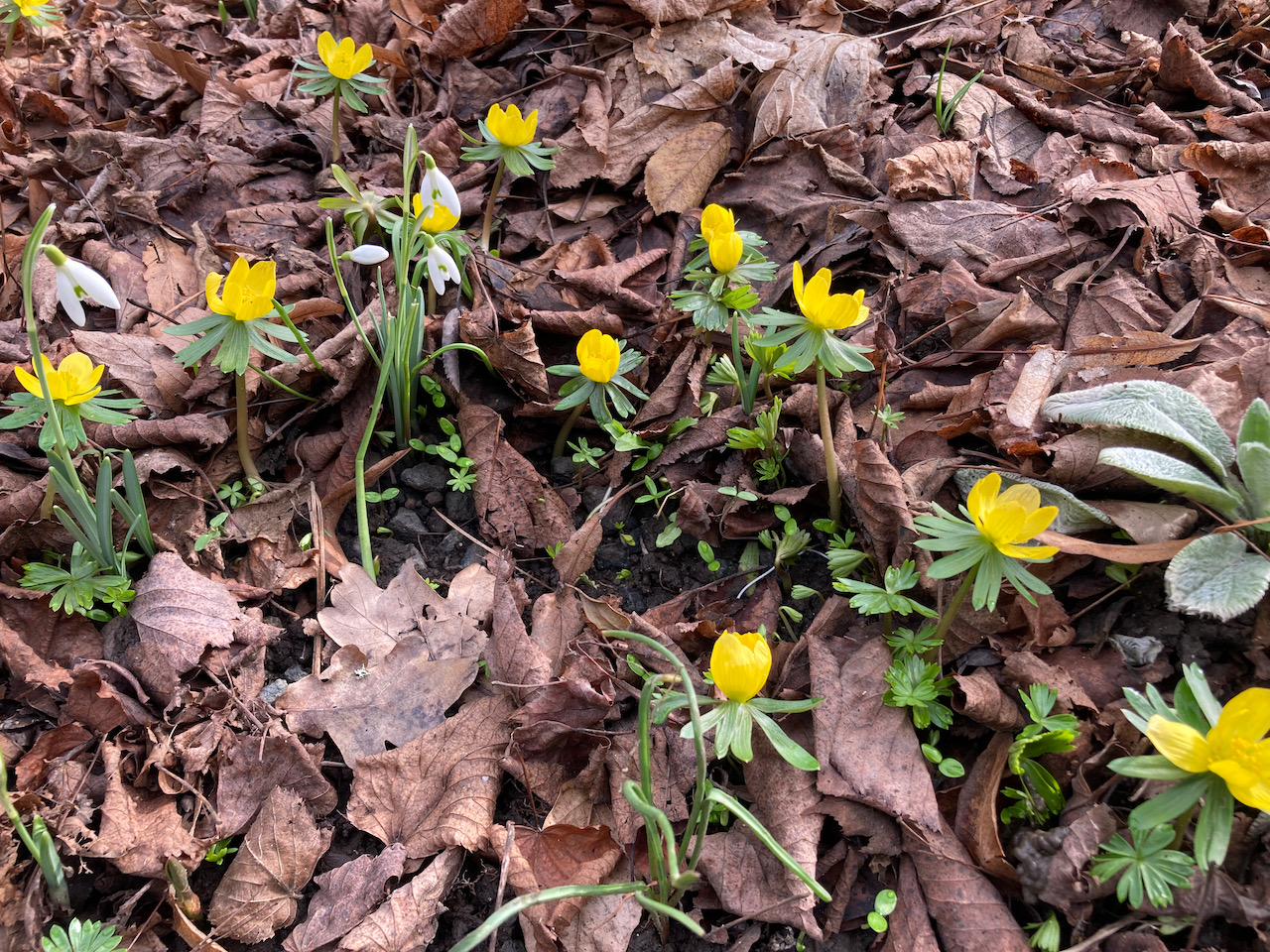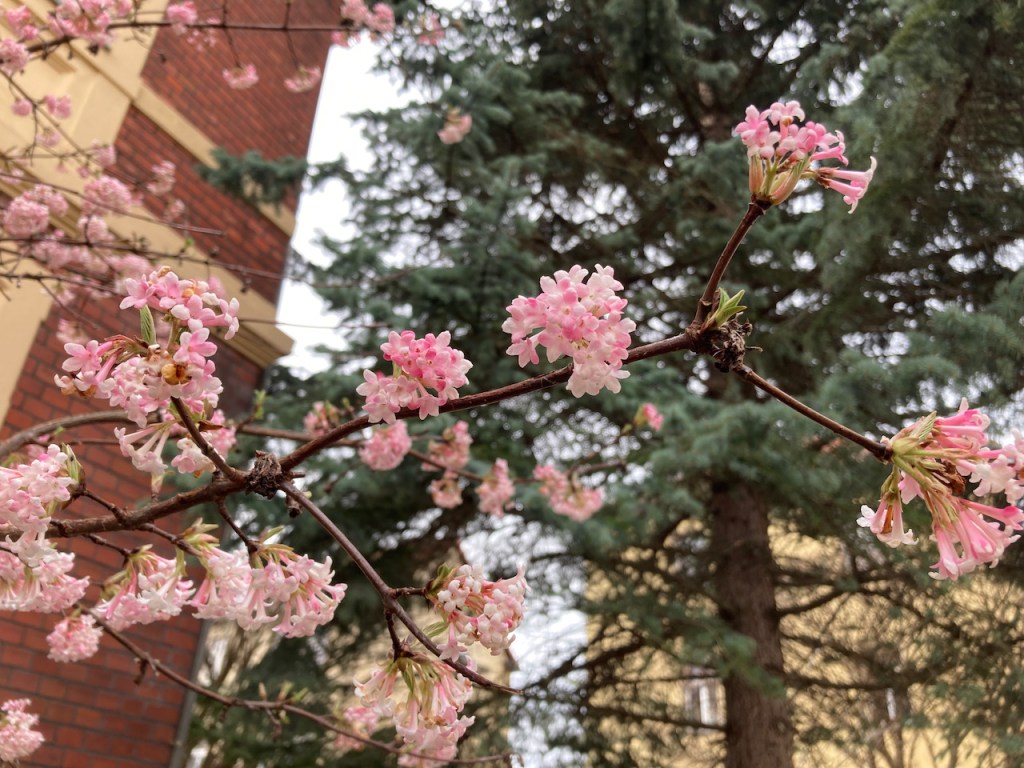I took a German language exam yesterday and had an experience similar to that of my own students, who are currently sitting exams, upon entering the room. My phone was collected, put into a pouch with my name on it, and then locked away until the exam was over and I left the building. The interesting aspect of this is that there was a long break between the written and oral parts of the exam, long enough that we were allowed to go out for lunch, and devices were not returned during this time. There were some signs of distress among my fellow test-takers when the announcement was made but, having read the regulations that arrived by mail two weeks ago, I was neither bothered nor surprised. A Margaret Atwood paperback was waiting in the break room.
As luck would have it, my name was last on the list for the oral component of the exam, a full three and a half hours after completing the written portion. Every twenty minutes, another pair of candidates left the waiting area, ultimately leaving the building through a back door. As we waited, we did what I suppose is natural in situations where other diversions are minimal: We talked.
I tend to be on the quiet side in large groups, and I sat with my book until someone identified that I was listening and directed a question at me. I must admit, the remaining time passed far more quickly as I joined in the lively conversation of German language learners. We shared what we were doing in Germany, how we had gotten there, how life now compared to wherever we came from, how long we’d been learning German. Casual small talk, really, but interesting considering the variety of nationalities, cultural and linguistic backgrounds, and work and life experiences of the people in the room. Everyone had something brand new to say and, as a doctoral student in the group pointed out, it is pretty easy to be myopic about our own experiences. There were, after all, many ways of getting to Germany.
There was also the fact, commented on by many, that likely no one would have exchanged any words at all had we had access to our phones. This had been the case upon arrival that morning, at which time I noticed that I seemed to be one of three who had brought other reading materials, a sure sign that life without a device is impossible for many to imagine. As it turned out, the time without a phone to get to know others really was a window into a very diverse group that I otherwise never would have encountered; aside from learning the same language, we have precious little in common that would naturally bring us into the same room.
My current thesis about the state of society, which I find increasingly stressful, egoistic, small-minded, oblivious, and fearful, to include just a few adjectives, is that the individual worlds that technology has created for each us have led to a wider world in which people are skeptical of each other because they do not know each other. They are stressed because they do not see people around them, anxious because they are living in a world that is too bright, too fast, and too anonymous. When we do not raise our eyes to others, we lose the need to fit into the norms of a society, leading to behaviours that are egocentric and, frankly, often obnoxious, equally disinterested in others as unaware that others are even there. This then leads to artificial worlds where everyone thinks the same way and everyone who doesn’t is shut out in their own little world, and the easiest way to keep people there is to create a false sense of security in the familiarity developed by personalized algorithms.
Therefore, it is no wonder that some people in the room yesterday clearly panicked when they learned they would not have access to their phones for a few hours. It is no wonder that some individuals chose to remain outside the group, pacing the hallway alone instead. But I think it is a very positive sign of what lies deep in humanity that the majority of us gathered around a table and got to know each other.
My town has recently installed a box of toys to share in a favourite field in the park. There are table tennis racquets, skipping ropes, large hoops, all the pieces for Vikinger Schach (a beloved German lawn game), and other toys made of wood in the box, a sign taped to the inside lid stating the box’s contents and the rules, which are simple: Use what you’d like and bring it back. Because the norm of trust is there, people behave accordingly. I think there’s a great deal in people, and biology supports this, that makes us want to be together, want to feel connected to each other. This is what made the pandemic so hard, isn’t it? And have we forgotten that already?
I have a poster in my classroom that quotes Hanna Holborn Gray: “Education should not be intended to make people comfortable; it is meant to make them think.” Being uncomfortable and working through that is what allows us to learn, and I think this is absolutely true of getting outside of our own bubbles and seeing the world with different eyes. It is this that then opens us to others, to new ideas and perspectives. The recognition that others experience the world differently provides new possibilities for how we understand the world, and then new ways of walking in it.
I think the fact that we have buried ourselves in technology, that we let something that is not real become our reality, has made us too used to what is easy, what is familiar, what we like. Losing contact with the many, many aspects of the world that are unfamiliar turns us away from each other and deeper into ourselves. This might be easy, but I also find it sad. Anyone who has observed children knows that humans are naturally curious, and I think it is critical to cultivate that. I am grateful to live in a town with a box of toys in the park, and grateful for the women who pulled me gently out of my book yesterday so that I, too, could spend some time in the real world.
And on the train ride home, the book stayed in my bag and I just looked around. Why not?




















